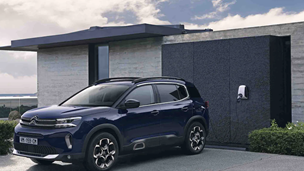Besides searching for a more efficient choice of model, there are many things you can do to cut the cost of motoring. A lot of little changes towards your approach to both driving and buying can make a huge difference in the long term.
Here are our ten top tips to help you cut the cost of your motoring bills.
1 - Shop Around For Petrol Prices
The largest cost for every motorist is fuel, but how many of us shop around to get a better deal? Using comparison sites like PetrolPrices.com should ease the strain. Currently, prices for unleaded petrol vary from 128p-145p a litre, with the average around 131.7p. Supermarket stations are continually offering deals while motorway service stations are best avoided as these are usually the most expensive forecourts to purchase fuel from.
2 - Slow Down
You don’t always have to be in a rush, right? The faster you drive the more fuel you will use. Cut your speed and you will save fuel making a single tank of petrol/diesel go a lot further giving you more bang for your buck. According to the AA, driving at 70mph uses up to 9% more fuel than driving at 60mph, and up to 15% more than at 50mph. Cruising at 80mph can use up to 25% more fuel than at 70mph.
3 - Drive Efficiently
Driving in an efficient manner will help you save money on fuel. Always drive in the highest gear when possible. Many new cars have gear shift indicators, take note of what the little light is telling you as you will save money if you obey its instructions. Try to work out what the traffic is doing up ahead, read the road and try to minimise harsh braking and accelerating. Not only will you save money but your passengers will be impressed at how smooth your driving has become.
4 - Look After Your Car
Give your car a health check once a week especially when driving in wintry conditions. Your car is under more pressure in extremely cold and hot temperatures. This health check should include checks on windscreen washer levels, water levels, battery fluid, brake fluid, engine coolant, oil levels, lights and tyre tread depth.
5 - Check Your Tyre Pressure
Over time, tyres will naturally leak a bit of air. This won't save you a fortune – the RAC says you can improve consumption by up to 2% if you regularly check and maintain pressures – but it's safer, too. Dozens of people a year die due to poorly inflated tyres.
6 - Car Sharing
A good way of keeping costs down is by joining a car scheme or having a car scheme in your office. You can alternate who takes the car each day with a simple roata, this will save you all money and keep the miles down on your car. As long as everyone keeps to the rota and plays fair, then this is a great way of saving money.
7 - Fixed Price Servicing
When you buy a new car, ask if the manufacturer offers a fixed price servicing plan. Usually these plans run for around three years and outline what you will pay for every service as it is built into your repayments. This makes a great deal of sense as it allows you to plan ahead.
8 - Shop Around For Insurance
Use comparison sites when your insurance is coming up for renewal. Ring your insurer and tell them the price if quoted cheaper by a rival company and hopefully they will be able to get you a deal, or you switch to get the best price possible. You could save yourself hundreds of pounds every time your renewal comes up.
9 - Buying
When you are going to buy a car, make sure to do your research first. Do you need a petrol or diesel car? Diesel cars have a hefty premium over petrol cars so make sure you are going to cover the miles needed to recoup the benefits.
10 - Start/Stop Technology
If you drive in crowded cities or town centres then make sure you have start/stop technology. This will shut the engine off when you are stopped in traffic and are in neutral with the handbrake on. This should save you money on fuel costs.




